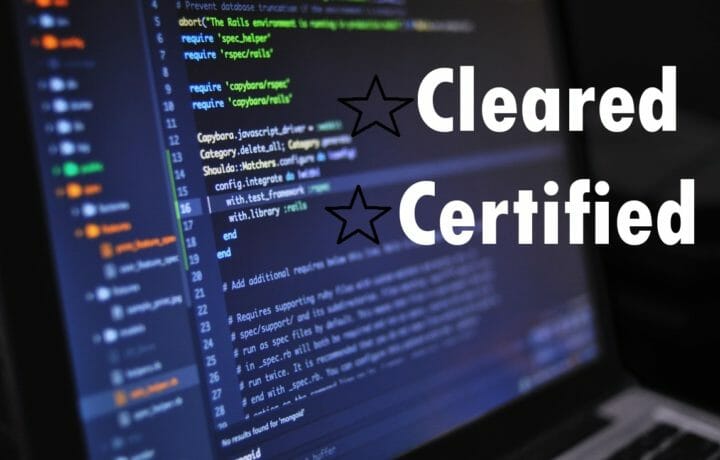There are so many IT certifications available today, it can be dizzying trying to nail down which certs are worth your time and effort and which are not. There are certs that are basic entry level or associate level certs, and there are certs that are high level, expert type certs. How do you begin to choose which certs are best for you? Does everyone need a CEH cert? I don’t think so. Does everyone need CompTIA’s A+ cert? Probably not. However, there are certs that I feel are very beneficial in building a foundational level of IT knowledge. Here’s a list of what I think are the certs you should have if you work in IT… in any capacity (yes – you, too, program managers!).
CompTIA Network+
Starting off with what I believe to be one of the best IT certs you can invest in, CompTIAs Network+ certification will give you the foundational networking knowledge you need to succeed from the help desk to the sys admin level. The Net+ certification curriculum will teach you what goes into design and implementation of functional networks. You will learn to configure, manage and maintain switches, routers and firewalls. Additionally you will learn about the OSI model and how to use it to troubleshoot networking issues. If you already have some basic networking knowledge, pick up a Net+ book and read it through before sitting for the exam. If you are green to networking, find a good online or in person class to help you prepare for the exam.
CompTIA Security+
Everyone that works in IT should have a solid understanding of security and the role you play in keeping the data center secure. CompTIA’s Security+ is another top notch certification (I promise CompTIA is not paying me to endorse their stuff!) that everyone in IT, from the help desk tech to the senior software engineer and even the program manager should have on their resume. Security+ will also make you DoD 8570 compliant at the IAM Level I and IAT Level II. The certification content includes physical security compliance, risk management, risk mitigation, threat management, intrusion detection, cryptography, email security, web security and application security. Starting with a solid Security+ study guide will get you off on the right foot, and there are many online and in-person training courses that will prepare you to take the exam.
VMware Certified Professional
VMware has exponentially expanded their certification roadmap within the past 10 years. At first, the only certifications they had were the VCP and VCDX (design expert). I’m not going to name them all in this post, however, the VCP is one of the industry best certs you can get today. The current iteration of the certification is the VMwareCertified Professional-Data Center Virtualization 2019 (VCP-DCV 2019). The certification content will cover experience with vSphere 6.7 to include vCenter Server, ESXi hypervisor, virtual networking basics, software defined datacenter essentials, virtualization security, installing configuration and management of the virtual infrastructure. Even if you are not a VMware admin, it is good to understand this technology simply due to the fact it is in just about every datacenter across the globe at this point. VMware has a great certification learning platform called Learning Zone, where you can sign up for courses and even watch some free videos. The Mastering VMware vSphere book is the best all around VCP study guide and reference book… I have a copy of each of the Mastering vSphere books back to vSphere 4, and they sit on my desk today!
ITIL Foundations
The IT career field is heavily influenced by customer perception. If you have the most advanced technology and network in the world, it will mean nothing if the customer perceives their interaction with the technology as frustrating. Have you ever experienced an Outlook outage? How do customers respond to an email outage? It can get ugly in a hurry. The Information Technology Infrastructure Library Foundations certification prepares the administrator to handle service delivery and management. This is one certification that every organization should ensure their technical teams all have. Some of the things ITIL will teach you are service life cycles, roles, functions, service design and implementation, and maintaining value for customers through monitoring and improving services. There is a great ITIL study guide that you should pick up if your company doesn’t provide it for you. In most cases organizations bring in outside instructors to teach the team as a group and then take the test at the end of the 4 day training.
Certified ScrumMaster
Another certification along the lines of the ITIL certification, the Certified ScrumMaster cert prepares the individual to function as a team leader within the framework of Agile software development. Many organizations across the world implement the Scrum methodology in software development, and having a Certified ScrumMaster on the team is crucial to the success of the customer deliverable. The ScrumMaster not only helps the team to perform at their best but also helps to keep outside distractions at bay Read more about the Certified ScrumMaster certification at ScrumAlliance’s website where you can find detailed information on the certification and the idea behind the Scrum methodology. If you want a solid book on what Scrum is, check out Essential Scrum: A Practical Guide to the Most Popular Agile Process.



